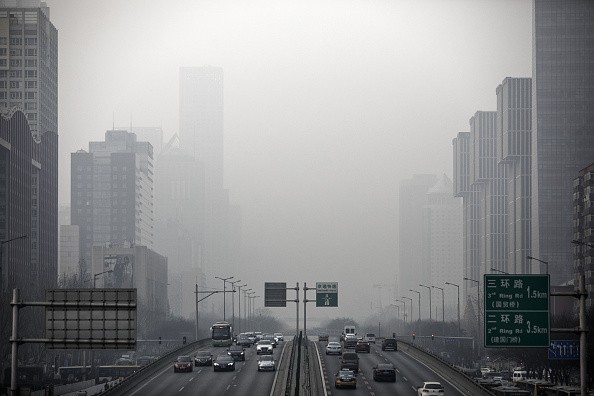While air pollution in the United States and Europe has significantly decreased over the last 50 years, China’s air pollution continues to have an all-time high.
Yuxuan Wang, assistant professor at the Department of Earth and Atmospheric Sciences at the University of Houston, has been given a three-year grant amounting to $52,000 by the National Science Foundation to conduct a study on Beijing’s severe air pollution problem.
“It is encouraging that the NSF is supporting the work we are doing to study emerging pollution problems in other parts of the world,” Wang said.
“This research will lead us to really improve our understanding of air pollution formation in different conditions,” she added.
Fine particulate matter, also known as PM2.5, is considered as the most damaging pollutant to human health. For many years, PM2.5 has been apparent in Beijing where emissions from large-scale coal burning and motor vehicles continue to pollute the air.
Together with Becky Alexander at the University of Washington, U.S.-based graduate students and Chinese collaborators, Wang will research on the unique atmospheric chemistry of sulfate and nitrate aerosols which are major inorganic components of PM2.5.
Air pollution has been pointed to cause respiratory and cardiovascular diseases. Small particles with a diameter less than 2.5 micrometers are the most dangerous as they can get deep into the lungs and even reach the bloodstream.
According to the conditions of the grant, researchers will utilize new measurements of the oxygen isotopic compositions of sulfate and nitrate aerosols collected in Beijing. The data will be used to interpret reaction mechanisms that cause extreme haze events.
Along with modeling of the isotopic composition of inorganic aerosols, the measurements will be used to study their specific sources.
The results of the study will advance fundamental knowledge on the formation of sulfate and nitrate during Chinese haze events and help in the development of air mitigation strategies in the country.
Wang also said that she will use other researchers’ findings on air pollution in China to get a better understanding of the quality of air in Houston.
“What we learn by studying pollution situations in China will lead to improvement and understanding of the mechanisms of pollution formation, and with that understanding, will improve the model of predicting pollution in Houston,” she said.
The researchers hope that their study will help in finding ways on how to curb China's air pollution.



























